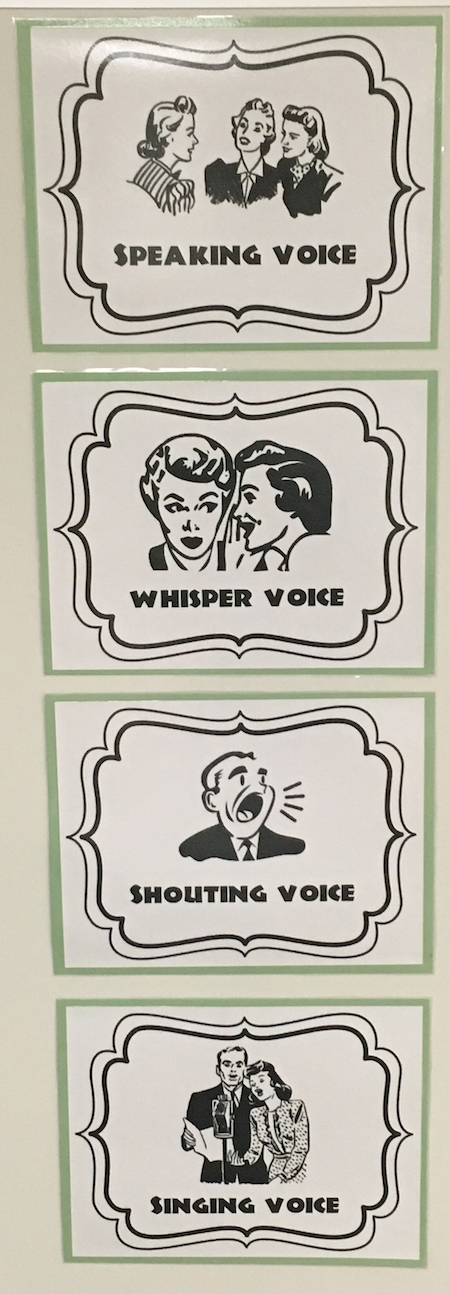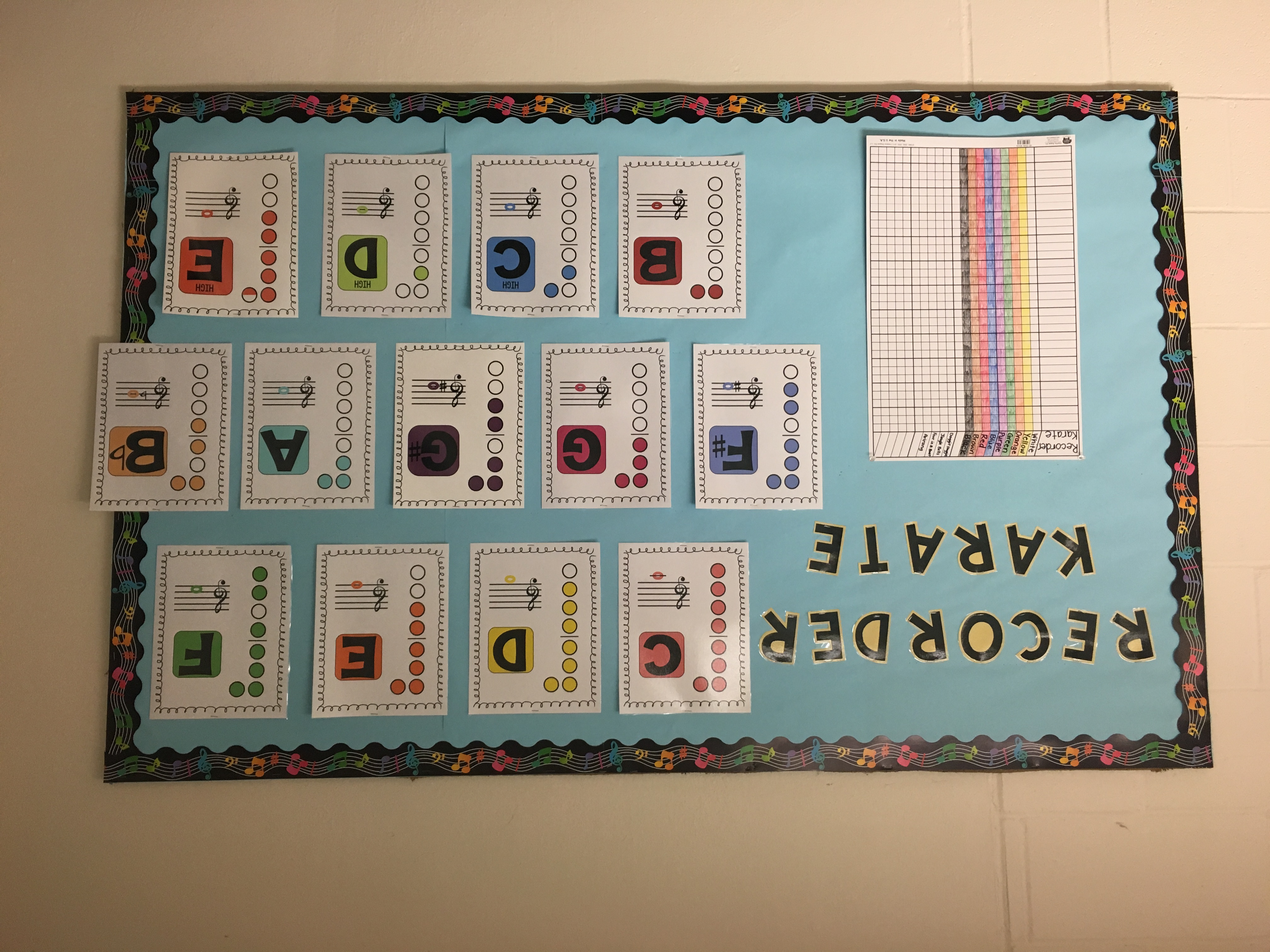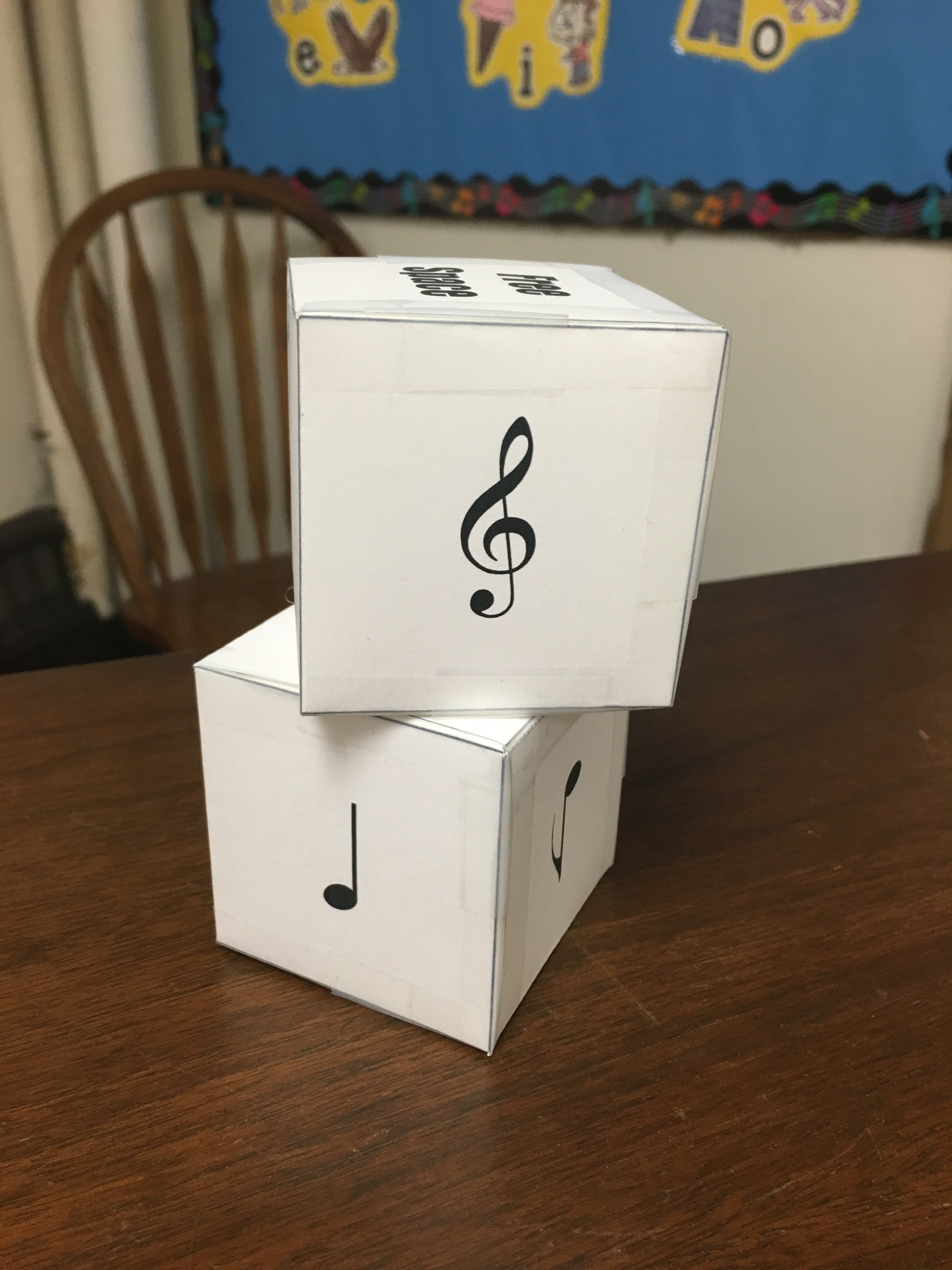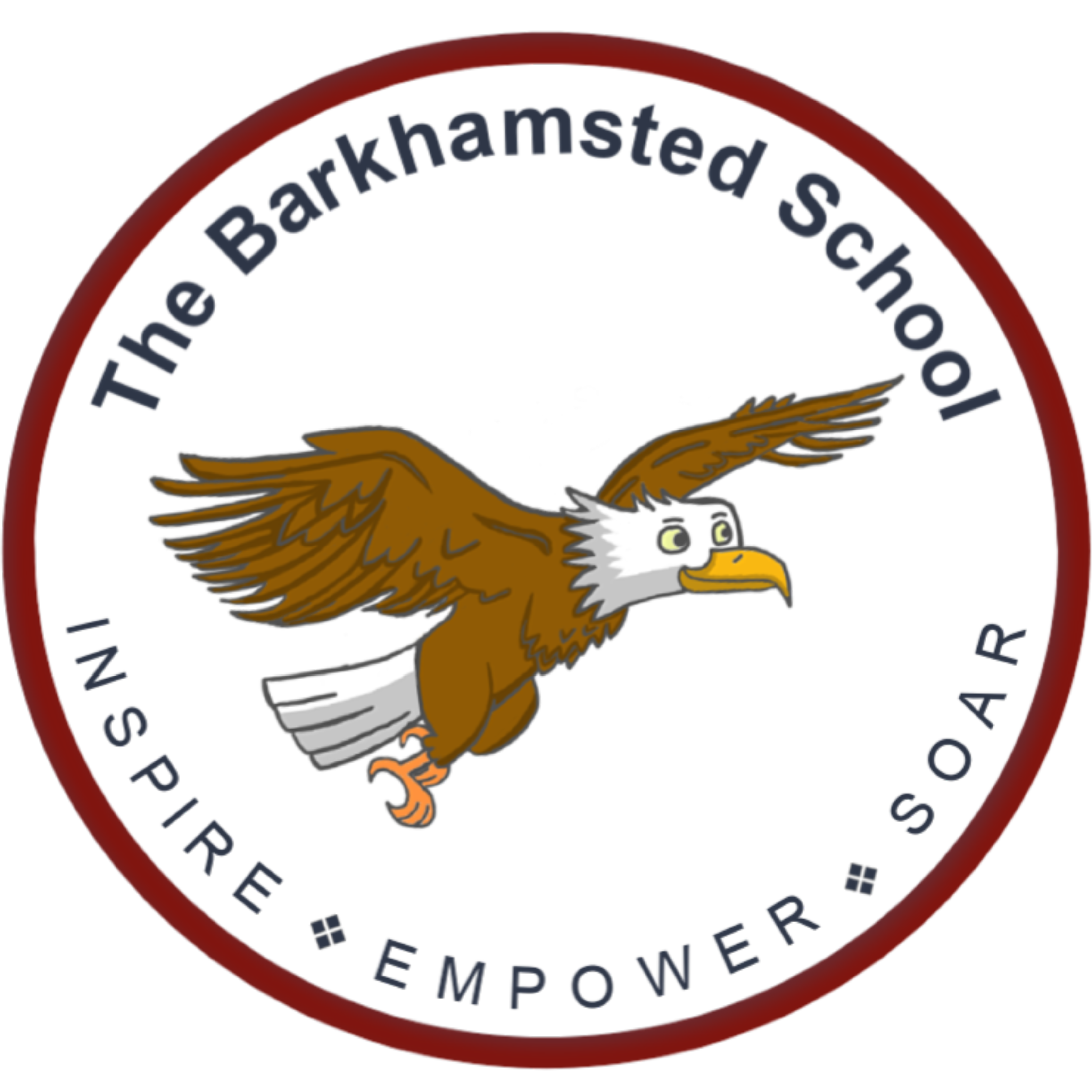General Music Classes
Primary Grades (PreK-2)
General Music for students in preschool, kindergarten, first grade and second grade is all about musical exploration and an introduction to basic music literacy. Students will focus on using their voices, playing classroom percussion instruments, keeping a steady beat, experiencing & reading basic rhythms, moving to music and listening & responding to music.

The different voices we can use!
Preschool Music
In preschool, students begin to explore musical concepts such as singing, keep a steady beat, moving to music, listening to music, and playing classroom percussion instruments. (Preschool students have music once per week for 20 minutes.)
Kindergarten General Music
In kindergarten, students begin to explore music together by singing, keeping a steady beat, moving to music, listening to music, playing classroom percussion instruments, and more! Students will also explore musical opposites such as fast and slow (tempo), soft and loud, (dynamics), high and low (pitch) and short and long (staccato and legato). Each spring, kindergarten students participate in the annual Kindergarten Play. (Kindergarten students have music once per week for 40 minutes.)
First Grade General Music
In first grade, students begin the process of becoming musically literate by learning note and rest values and how to read and write rhythms. First graders will continue to explore musical concepts (such as pitch and melody, rhythm, tempo, and dynamics) through singing, keeping a steady beat, moving to music, listening to music, playing classroom percussion instruments, and more! Each spring, first graders participate in a spring showcase to share their work in music throughout the year. (First Grade students have music once per week for 40 minutes.)
Second Grade General Music
In second grade, students will continue the process of becoming musically literate by reviewing concepts from first grade and learning to read and write new note and rest values as well as learning to read notes on the treble clef. Students will also learn new musical vocabulary to help them accurately read and play music. Second graders will continue to explore musical concepts (such as pitch and melody, rhythm, tempo, and dynamics) through singing, keeping a steady beat, moving to music, listening to music, playing classroom percussion instruments, and more! Each spring, second graders participate in a spring showcase to share their work in music throughout the year. (Second Grade students have music once per week for 40 minutes.)
Third Grade
General Music for students in third grade is all about recorder! Students will continue to explore many musical concepts learned in the primary grades, but a great deal of our time in music class will be applying those musical skills to learning to play the recorder. Not only is this a wonderful preparation should students choose to start a band instrument in fourth grade, but playing the recorder is a lot of fun! Each spring, third graders participate in a spring showcase to share their work in music throughout the year. (Third Grade students have music once per week for 40 minutes.)

Recorder Karate progress and note fingering charts.
Recorder Karate Program
Students use the Recorder Karate program as they learn to play recorder. With each new note or song, students have the opportunity to earn a "belt" that they will put on their recorder. These levels are modeled after Karate belts and motivate children to learn and practice!
Students also have the opportunity to earn "Extra Belts" if they learn and play the extra songs in their recorder book, or songs they have composed. Once students earn their Black Belts, they also have the opportunity to learn and play more challenging music to earn Black Belt Level Belts.
Students will receive all of the Recorder Karate materials the day that they start playing recorders in music class. Everything but the recorder will be provided for students (see below for more info on buying a recorder).
Recorder Karate Materials
Students should bring the following items to music class each week:
Recorder
Recorder Karate Folder
Students may choose to keep a second recorder at school instead of bringing it back and forth each week. Information about purchasing a recorder will be given out at the start of each school year.
You can also find the letter by clicking here.
Upper Grades (4-6)
General Music for students in fourth, fifth and sixth grade focuses on taking musical skills to the next level. Students are well on their way to becoming musically literate and can broaden and deepen their understanding of music and music skills. Beyond reviewing and applying the skills and concepts students have already learned in the primary grades, each of the three upper grades have a specific overarching focus for the year: fourth grade focuses on instrument families, fifth grade focuses on American music, and sixth grade focuses on Music History.
It is during fourth, fifth and sixth grade that students may decide they would like to sing in Chorus or play an instrument in Band. Please look at the Choral Music and Instrumental Music pages for more information!

Playing games makes music literacy fun!
Fourth Grade General Music
In fourth grade, students learn more in-depth information about the instrument families including percussion, brass, woodwind, string and keyboard families. Many fourth graders choose to play a band instrument, so their study of the musical families in general music helps them to gain an even greater knowledge of their chosen instrument. Fourth graders will continue to review and apply musical concepts such as pitch and melody, rhythm, tempo, dynamics, composition, movement and instrument skills. (Fourth Grade students have music once per week for 40 minutes.)
Fifth Grade General Music
In fifth grade, students will focus on American music. Through varied musical experiences, students will learn about Patriotic music, the music of the U.S. Armed Forces, American folk music & dance, American singing games, music of Indigenous Americans, and Jazz. Fifth graders will also spend quite a bit of time learning to play the ukuleles; students will be introduced to TAB notation as well as reading chord charts. Fifth graders will continue to review and apply musical concepts such as pitch and melody, rhythm, tempo, dynamics, composition, movement, and instrument skills. (Fifth Grade students have music once per week for 40 minutes.)
Sixth Grade General Music
In sixth grade, students will experience a variety of music throughout the timeline of music history including the Medieval, Renaissance, Baroque, Classical, Romantic, Modern (20th & 21st Century) Eras. Within the Modern Era, they will also learn about Musical Theater, Film Music & Sound Effects, and Pop & Rock Music. Sixth graders will continue to review and apply musical concepts such as pitch and melody, rhythm, tempo, dynamics, composition, movement, and instrument skills in relation to the music history timeline. (Sixth Grade students have music once per week for 40 minutes.)
